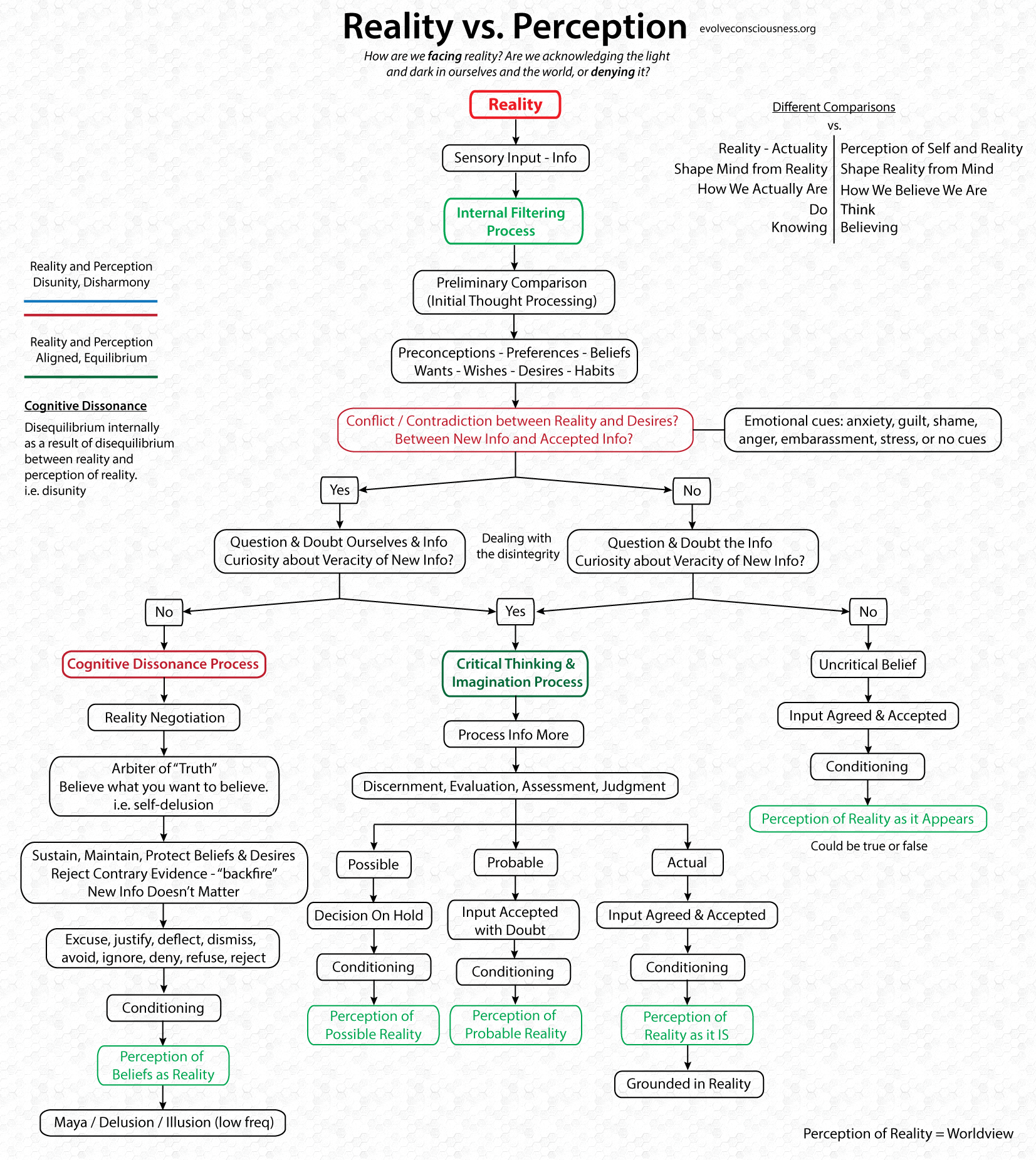How are we facing reality? Are we acknowledging the light and dark in ourselves and the world, or denying it?

[Related to the previous post on how we perceive ourselves (self-view, self-image) and existence (worldview): Alchemical Divorce Symbolism]
Cognitive dissonance is a negotiation with reality required to maintain/sustain our illusory sense of self or worldview. The ego-personality-identity defenses protect our self-concept from dissolution. We can’t admit our wrong, and when confronted about it, it leads to embracing the wrong more. New information is rejected through the “backfire” effect, and the wrong belief is held onto more dearly. We condition ourselves to believe in, and love, the things we suffer for.
It is kind of like a Stockholm Syndrome towards untruth. We get Mind Controlled by falsity, and live our lives accordingly, suffering and loving it, defending our suffering. Our attachment to untruth brings us our self-inflicted suffering, yet we don't care about that self-abuse, and choose to keep loving our self-delusional negotiation with reality.
This is a person who remains attached to falsity, lies, deceptions and illusions. They can’t process contradiction well. They remain attached to lies they use as a basis for their identity. In their ego attachment, they choose beliefs over the truth. Their logically processing capacity is diminished, and therefore accepts contradiction and ignores the truth.
The critical thinking, trivium, imagination, wonder, curiosity, questioning, doubt, etc. is the path of facing the Truth in reality, the good and the bad, the light and the dark, the beauty and horror, to empower ourselves with accurate perspectives and positions on the “game board” of life. This person can process contradiction and choose the most accurate result. They have less ego attachment. This is a free thinker who changes their self-concept, worldview and behaviors instead of altering perceptions to fit preconceptions.
If you have not given previous thought as to how you process data in yourself, then you might be processing data incorrectly and arriving at erroneous conclusions about things.
Video
(timestamped to start at 41:13m for the above infographic)
Authored by Kris Nelson/@krnel

